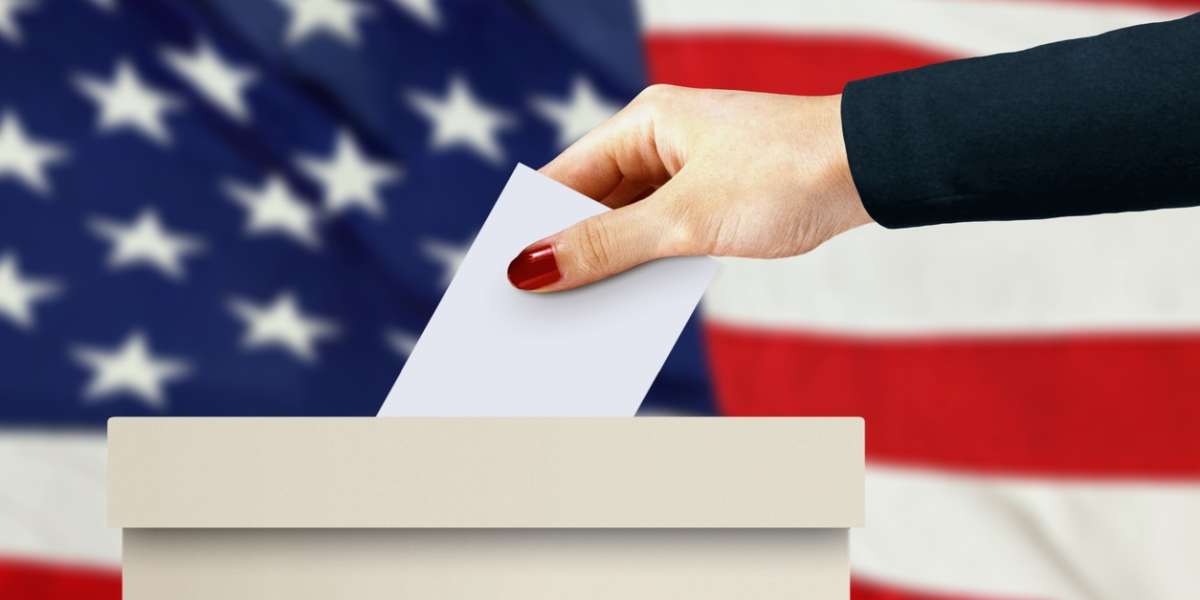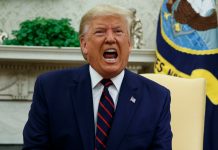
The country’s top counterintelligence official says that multiple foreign adversaries are actively targeting the November election in a variety of ways, from launching influence campaigns in social and traditional media to targeting election infrastructure, to attempting to compromise the private communications of political officials.
“At this time, we’re primarily concerned with China, Russia and Iran, although other nation-states and non-state actors could also do harm to our electoral process,” Bill Evanina, National Counterintelligence and Security Center (NCSC) Director, said in a statement Friday. “Our insights and judgments will evolve as the election season progresses.”
NCSC is part of the Office of the Director of National Intelligence (ODNI), which coordinates the activities of the country’s 17 intelligence agencies.
“Foreign efforts to influence or interfere with our elections are a direct threat to the fabric of our democracy,” said Evanina, a career official who has served as NCSC Director since 2014. He was tasked with personally briefing relevant stakeholders – including Congress, political campaigns and candidates – on election security earlier this year.
China, his statement said, is “expanding its influence efforts to shape the policy environment in the United States.” Russia “continues to spread disinformation in the United States that is designed to undermine confidence in our democratic process and denigrate what it sees as an anti-Russia ‘establishment’ in America.” And Iran’s efforts “centre around online influence, such as spreading disinformation on social media.”
The coronavirus pandemic and recent protests for racial justice had provided “fodder” for influence and disinformation efforts, Evanina said.
His statement drew swift and sharp criticism from top Democratic congressional leaders, who said it created a “false sense of equivalence” among China, Russia and Iran – three countries, they cautioned, that have demonstrated “unequal intent, motivation and capability.” Evanina’s warning on Russia’s activities in particular, they said, was “so generic as to be almost meaningless.”
The Democrats’ response was issued jointly by House Speaker Nancy Pelosi, Senate Minority Leader Chuck Schumer, House Intelligence Committee Chairman Adam Schiff and Senate Intelligence Committee Vice Chairman Mark Warner. All four are part of the so-called “Gang of 8,” a select group of lawmakers routinely briefed by the executive branch on classified matters.
“A far more concrete and specific statement needs to be made to the American people, consistent with the need to protect sources and methods,” the lawmakers said.
The same group on Monday demanded a defensive counterintelligence briefing from the FBI for all lawmakers before the August recess, expressing concern in a letter to FBI Director Chris Wray that Congress “appears to be the target of a concerted foreign interference campaign.” Two sources confirmed the Democrats’ concerns stem from information derived from Russian intelligence sources and provided to a Senate committee that is currently investigating presumptive Democratic nominee for president Joe Biden and his son, Hunter.
A spokesman for the Homeland Security and Governmental Affairs Committee, headed by Republican Senator Ron Johnson of Wisconsin, said its staff had already been briefed on the material by the FBI, and that a briefing for members of the committee had also been requested.
A Russia-linked effort to disparage a presidential candidate would be reminiscent of efforts by Moscow to influence the 2016 election. The U.S. intelligence community concluded that the Russian government in 2016 launched a broad, multi-prong influence campaign designed to boost then-candidate Trump’s chances of winning while damaging Secretary Clinton’s. The conclusion has been reinforced by a bipartisan Senate Committee and bolstered by the findings of special counsel Robert Mueller.
Neither China nor Iran are known to have attempted to engage in election interference campaigns in 2016.
President Trump has consistently downplayed Russia’s unprecedented incursion in 2016 while reserving praise for President Vladimir Putin, with whom Mr Trump spoke on Thursday. Neither government’s readout of the leaders’ call said election interference was raised.
An ODNI official defended Evanina’s statement on Friday, stressing that there had been no particular “order or weight” ascribed to the adversaries mentioned, but that it was important to explain that “multiple nations” are now trying to influence the 2020 election.
“This statement in no way downplays the election-related threats from Russia, which are very serious and which we have briefed to Congressional leaders,” the official said. “However, other nation-state actors have entered the election threat arena in a big way and they can’t be ignored.”
“This is the beginning of a conversation with the American public,” the official continued. “There is more to follow.”
Earlier this year, federal agencies issued a framework for notifying Congress, political campaigns and the public of foreign interference. It says explicitly that “partisan politics shall not play [a] role in the decision to provide notifications.”
As part of its multi-part, bipartisan investigation into Russia’s 2016 election interference, the Senate Intelligence Committee recommended that the public be informed “as soon as possible, with a clear and succinct statement” of any influence campaign targeting elections, even if the information is incomplete.











